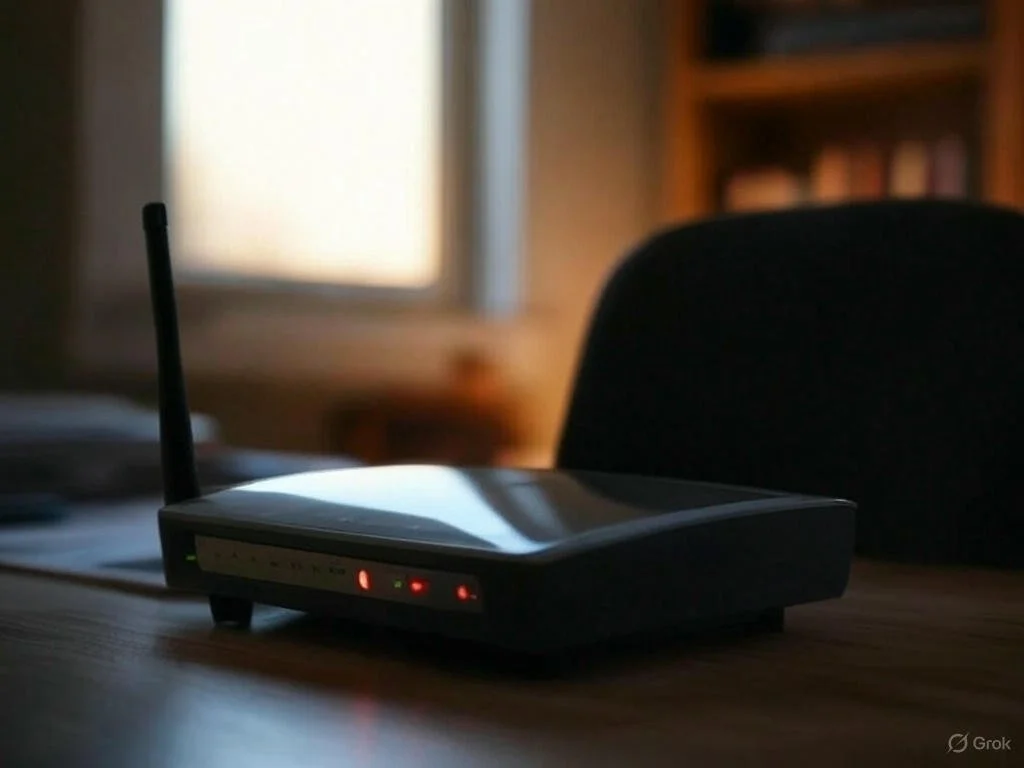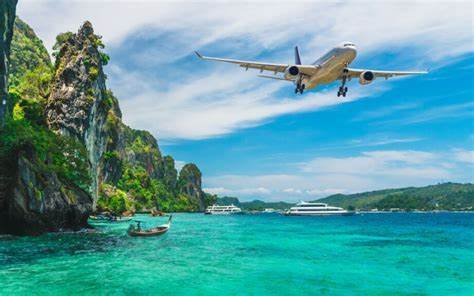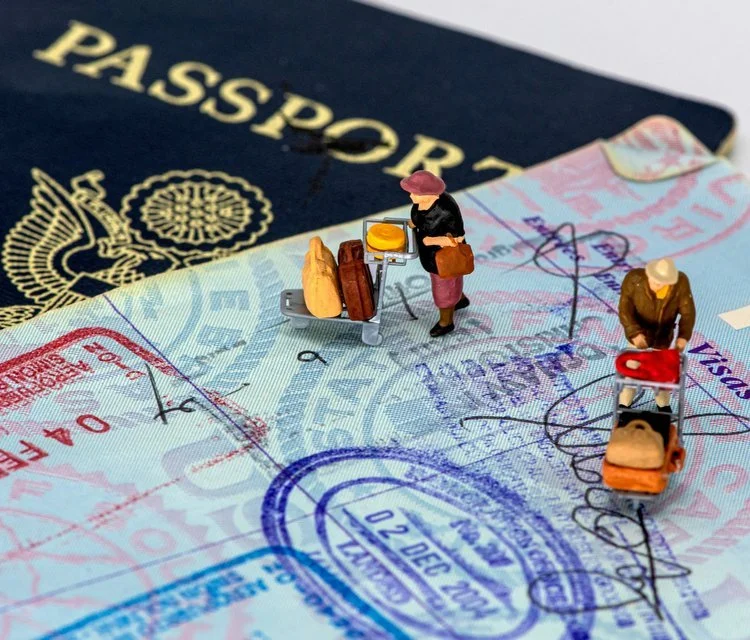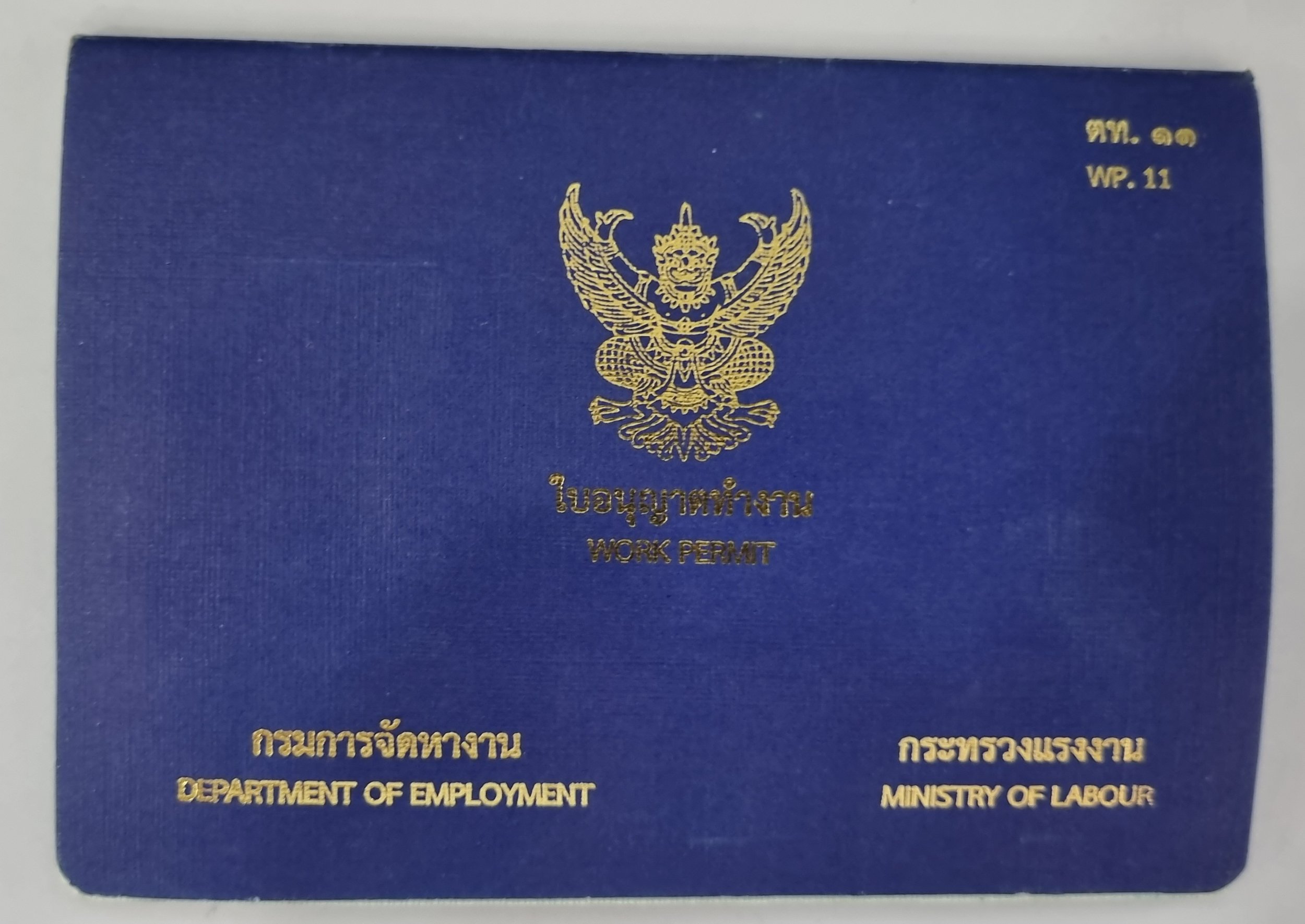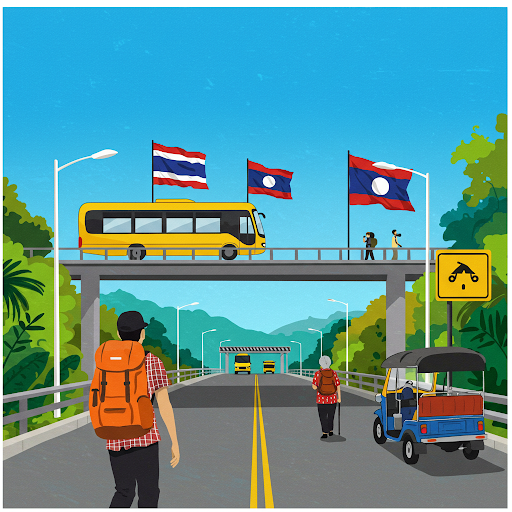Non Immigrant B Visa Thailand: A Comprehensive Guide
The Non-Immigrant B Visa is the key to your Thailand adventure, offering a 90-day stay to kickstart your teaching career. It is also commonly referred to as a business visa for those seeking to work or conduct business in Thailand.
It’s not just for teachers, though, it’s also the go-to visa for foreign workers across various professions looking to work legally in Thailand. For a full overview of Thailand’s visa policies, check out the Thai Government Portal.
Since January 1, 2025, the Royal Thai Embassy’s e-Visa system has made applying a breeze. The visa application process requires you to prepare and submit a completed application form along with all documents required for your specific visa category.
You can submit your application online at https://www.thaievisa.go.th/ with just a laptop and reliable Wi-Fi, saving you from long embassy queues.
This guide is your roadmap to navigate the process, whether you’re coming from London, LA, or anywhere else, ensuring you’re ready to thrive in Thailand’s warm and welcoming schools.
For more teaching tips, visit Kids English Thailand.
Why the Non-B Visa is a Big Deal for Teachers
The Non-Immigrant B Visa is your ticket to teaching legally in Thailand, tourist visas won’t cut it for work. Designed with educators like you in mind, it gives you a 90-day entry stamp to start your journey and secure a work permit.
You’ll need an employment contract and a letter from your school to make it happen, connecting you to your new school community. These documents are required for employment purposes as part of the visa process.
The e-Visa system, rolled out by the Royal Thai Consulate General, lets you apply from the comfort of home. But one wrong move could delay your dream, so let’s get it right from the start. For official visa details, see the Royal Thai Embassy.
The hiring company (your school) is responsible for providing supporting documents such as corporate registration and other official paperwork needed for your application.
Understanding Eligibility and Conditions
Before you dive into the Non-Immigrant Visa “B” application, it’s essential to know if you’re eligible and what conditions you’ll need to meet.
This visa is designed for foreign citizens who want to conduct business, work, or invest in Thailand, whether you’re joining a company, starting your own business undertaking, or collaborating with business partners.
Eligible applicants must provide a valid passport and a completed application form, and for teachers, a Letter of Approval from the Ministry of Labour Thailand is required from the prospective employer.
For investment-related visa options, check the Board of Investment Thailand.
Getting Started on the e-Visa Site
Head to https://www.thaievisa.go.th/ to begin.
Set up an account with a strong password, skip anything obvious like “teacher123,” and double-check your Wi-Fi.
A dropped connection once cost me a week’s delay, trust me, you want a stable internet for this.
Filling Out Your Visa Application
Show Thailand you’re ready to teach. Here’s how to fill out the application:
Select “Work & Business Visas,” then “Non-Immigrant B Visa” to align with your teaching goal.
Enter your full name, passport number, applicant’s position (job title, like “English Teacher at [School Name]”), and applicant’s country (your country of residence) as the application form asks.
Include details about your hiring school, like its name and address.
Double-check everything, mistakes here can lead to rejection.
Schools must provide company documents such as business registration and a school license to prove they’re legit.
For more on Thai document requirements, visit the Kids English Thailand Blog.
Uploading Your Documents
Get your documents uploaded with care.
You’ll need:
Travel document (passport) with sufficient remaining validity (at least 6 months).
Two passport-sized photographs (4x6 cm).
Recent criminal background check.
Resume.
Four key school documents: job offer letter, school registration, government approval, and employment confirmation.
Bank statement showing $500-$1,000 USD).
Letter of Approval from the Ministry of Labour Thailand for teaching positions.
Make sure each file is clear and readable to avoid delays. Keep files in PDF, JPG, or PNG format, under 3 MB. Blurry scans are a rejection waiting to happen.
All documents in foreign languages must be translated into Thai or English and notarized; for translation services, try Thai Translation Services.
Depending on your role, you might need additional documents such as:
Corporate documents, registration, and business license.
Balance sheet, income tax, business tax, business tax por ngor, tax por ngor dor, or value added tax registration (Por Por 20).
Map indicating location of the school/company.
Details of business operation.
National identity card or residence documentation.
Documents with foreign workers stating names, nationalities, and positions.
Letter explaining any special circumstances or other supplementary paperwork.
For tax-related details, check the Revenue Department of Thailand.
Paying the Visa Fee
Seal the deal with your payment.
The Non-Immigrant B Visa costs about 2,000 THB (~ USD 60) for a single entry, per the Thai Embassy in Vienna.
Fees vary by country and visa type, multiple-entry visas cost more.
Pay with a Visa or Mastercard, save your receipt, and note that fees are non-refundable.
Check the latest rates at https://www.thaievisa.go.th/.
Waiting for Approval
Now, sit tight!
Processing takes 5-15 business days, with a consular officer at the nearest Royal Thai Embassy or Thai embassy or consulate reviewing your application.
You might need to send extra documents if they ask.
Some visa types, such as the three-year Non-Immigrant Visa ‘B’, allow multiple entries during the validity period, so you can visit Thailand as often as needed without renewing your visa for each trip.
Once approved, you’ll get a PDF e-Visa in your inbox, print it in color and keep it with your passport.
If it’s been over 20 days, send a polite follow-up to visa@thaievisa.go.th.
Arriving in Thailand and Extending Your Stay
You’re almost ready to teach.
Show your e-Visa and passport at immigration (like Suvarnabhumi Airport) for a 90-day stay.
To stay longer, apply for a visa extension at the Immigration Bureau before those 90 days are up, using your work permit and contract.
An immigration officer will review your application, and if approved, you could stay up to a year.
If you plan to leave and return, get a re-entry permit to keep your visa valid.
You can re-enter Thailand as long as your visa remains valid.
For extension details, visit Thailand Immigration Office.
Need a work permit?
Apply within 15 days of arrival through the Ministry of Labour Thailand or a provincial employment office.
Pro Tips for a Smooth Process
Here are some tips to ensure success:
Plan Ahead: Give yourself 2-3 weeks, as background checks or delays can slow things down.
Stay Legal: Only work with recognized schools, self-employment isn’t allowed.
Streamline Extensions: Use the e-Visa system and have all documents ready for a hassle-free extension.
Need Help?: Stuck on uploads or missing papers? Contact Kids English Thailand for support.
Why This Guide is Your Secret Weapon
This isn’t just a guide, it’s your personal playbook for teaching in Thailand in 2025.
The e-Visa system cuts out the chaos of old-school visa runs, and with our school documents, you’re set for a smooth ride, as refreshing as a sip of Thai iced tea.
Tailored for teachers, it’s got everything you need to settle in and shine.
For more teaching resources, check Kids English Thailand.
Ready for Thailand’s classrooms?
With this guide and a sprinkle of patience, you’re set to make your teaching dream come true.
Sawasdee krap, let’s do this.
Final Thoughts
We hope this post lights a fire under your teaching journey in Thailand.
Kids English Thailand is here with tips, insights, and a community to make your experience unforgettable.
Got questions or want to dive deeper?
Check out our related posts below or join our crew of educators changing lives in Thailand.
Let’s keep the good vibes going.
Frequently Asked Questions (FAQs)
What is a Non-B Visa for Thailand?
The Non-Immigrant B Visa is Thailand’s business and work visa for foreign citizens, allowing legal employment or business activities, including teaching. It’s valid for 90 days from issuance and requires a work permit for employment. Check https://www.thaievisa.go.th/ for details.
Can I change my tourist visa to a Non-B Visa in Thailand?
Yes, foreign citizens with a tourist or transit visa can apply to change to a Non-Immigrant B Visa at the Thailand Immigration Office. You’ll need additional documents, like an employment contract, and may need to exit and re-enter Thailand.
Can US citizens enter Thailand without a visa?
US citizens can enter Thailand visa-free for tourism for up to 30 days (extendable to 45 days as of 2025). For work, including teaching, a Non-Immigrant B Visa is required. See Royal Thai Embassy for visa policies.
What is Non-B?
Non-B refers to the Non-Immigrant B Visa, designed for work or business in Thailand, including teaching, business operations, or investments. It’s valid for 90 days initially, with extensions up to one year. Learn more at Kids English Thailand.
What is a Non-Immigrant Visa B in Thailand?
It’s a visa for foreign workers or business professionals, granting a 90-day stay to start employment or business activities. Teachers need it to work legally, paired with a work permit. Visit https://www.thaievisa.go.th/ for application info.
How much is the Non-Immigrant B Visa in Thailand?
The Non-Immigrant B Visa fee is approximately 2,000 THB (~ USD 60) for a single entry, though it may vary by country. Multiple-entry visas cost more, typically 5,000 THB for one year. Check https://www.thaievisa.go.th/ for the latest rates.
How long does it take to get a Non-Immigrant B Visa in Thailand?
Processing takes 5-15 business days, depending on document completeness and consular workload. Contact visa@thaievisa.go.th if delayed beyond 20 days.
How do I get a 1-year Non-Immigrant B Visa in Thailand?
Enter Thailand with the initial 90-day stamp, then apply for an extension at the Immigration Bureau before it expires. You’ll need your work permit, employment contract, and other documents. Our team at Kids English Thailand will guide you.
How do I extend my Non-Immigrant B Visa in Thailand?
Visit the Immigration Bureau before your 90-day stay ends. Bring your passport, work permit, employment contract, and requested documents. The e-Visa system helps streamline preparation.
See Thailand Immigration Office for details.
What documents do I need for a Non-Immigrant B Visa as a teacher?
You’ll need:
Valid passport (valid for at least 6 months).
Completed application form.
Two 4x6 cm photos.
Recent criminal background check.
Resume.
Bank statement ($500-$1,000 USD).
Letter of Approval from Ministry of Labour Thailand.
Four documents from us: job offer letter, school registration, government approval, employment confirmation. All documents in foreign languages must be translated and notarized; try Thai Translation Services. Visit https://www.thaievisa.go.th/ for specifics.
Can I apply for a Non-Immigrant B Visa online?
Yes, since January 1, 2025, apply online via the Royal Thai Embassy’s e-Visa system at https://www.thaievisa.go.th/, perfect for teachers worldwide.
Where do I apply for a Non-Immigrant B Visa?
Apply at the Royal Thai Embassy or Consulate-General in your country of residence or relevant jurisdiction. If in Thailand with an employment offer, you may need to apply from a foreign country. See Royal Thai Embassy for locations.
What visa categories are available for business in Thailand?
Options include:
Non-Immigrant B (business and work).
B-A (approved business activities).
IB (investment projects).
Visas for tourism or export business. Each has specific criteria. Learn more at Board of Investment Thailand.
What business activities are relevant for the Non-Immigrant B Visa?
It covers teaching, export transactions, and business operations. Applicants may need business association documents, especially for export business. Self-employed individuals submit certified business registration and proof of business undertaking. Check Ministry of Foreign Affairs Thailand.
What are the requirements to conduct business in Thailand?
Foreigners must comply with visa and work permit regulations. The Ministry of Foreign Affairs Thailand and Industrial Estate Authority of Thailand facilitate investment and oversee business activities.
Do I need a work permit with a Non-Immigrant B Visa?
Yes, a work permit is required to teach legally. We’ll help you obtain it through the Ministry of Labour Thailand after entering with your Non-B Visa.
Can family members join me with a Non-Immigrant B Visa?
Yes, spouses and children can apply for a Non-Immigrant Visa-O, allowing stays up to one year tied to your visa status. You’ll need translated, notarized marriage or birth certificates.
See Royal Thai Embassy for details.
What is the One Stop Service Centre for Non-B Visas?
The One Stop Service Centre in Bangkok offers expedited visa and permit services for eligible teachers, investors, and professionals. Eligibility depends on your role or school’s status.
Visit One Stop Service Centre for more information.





